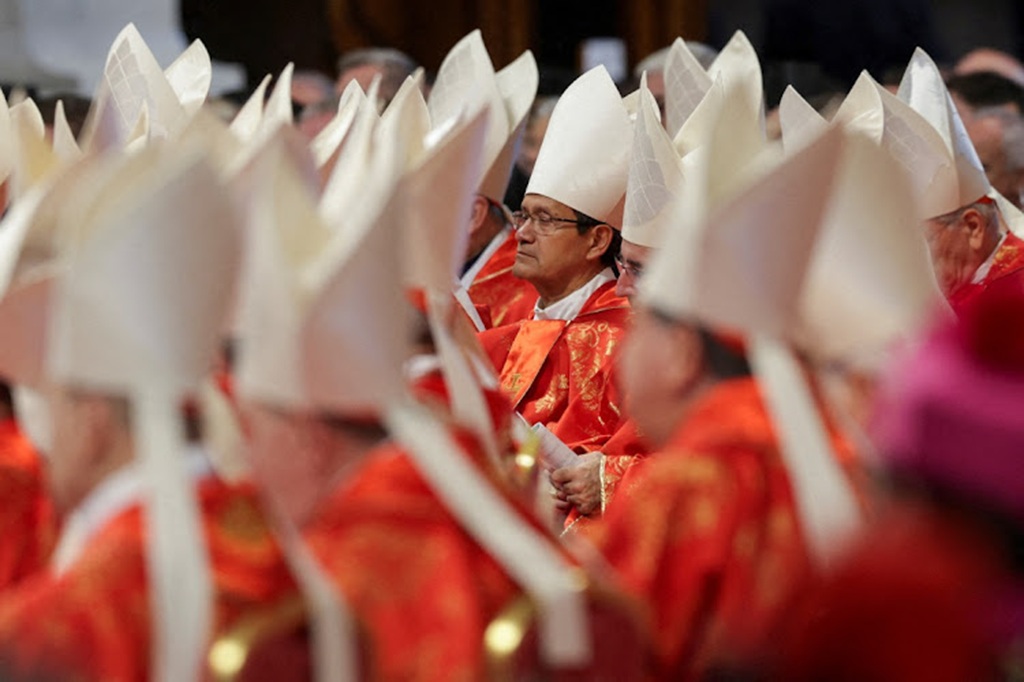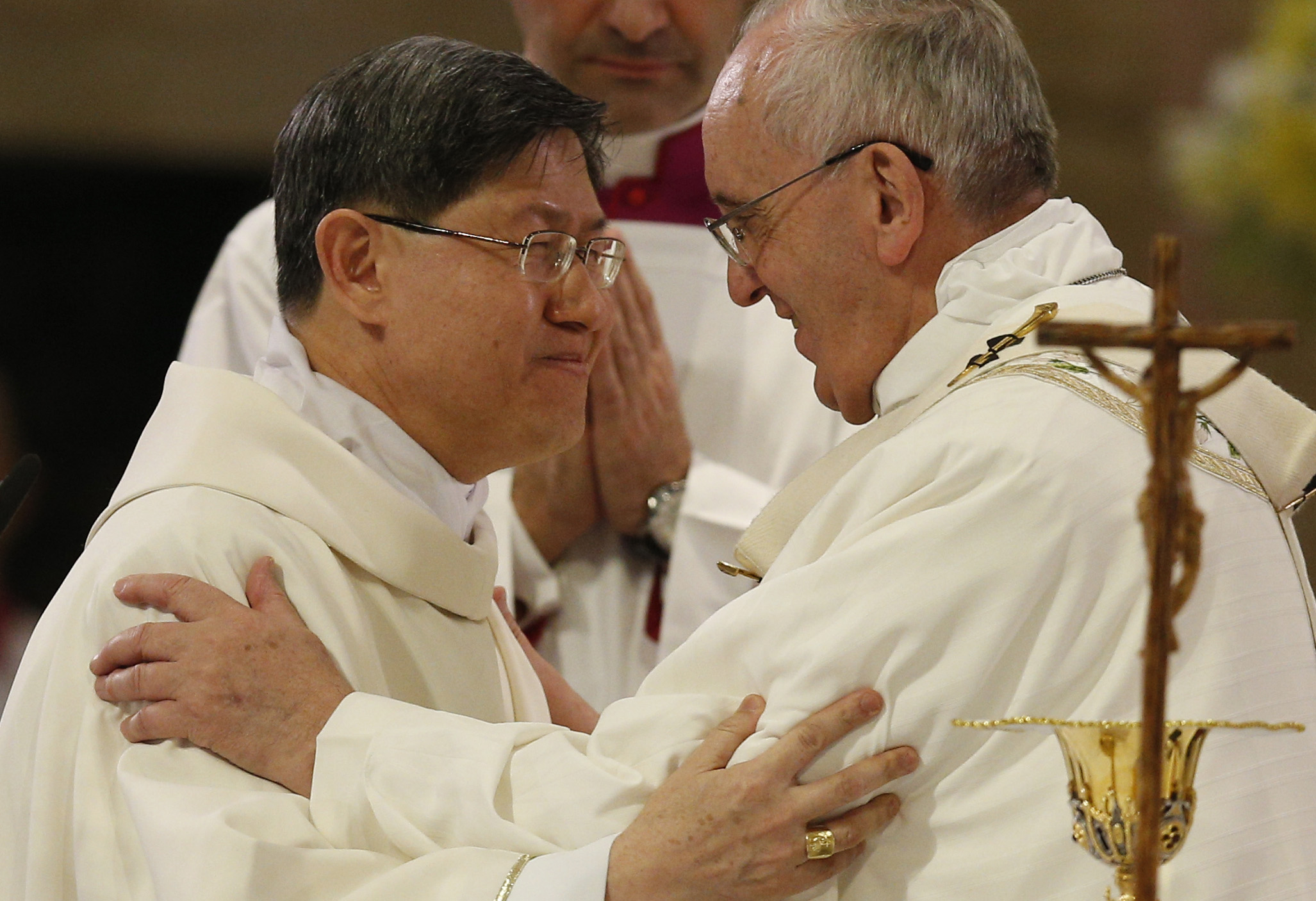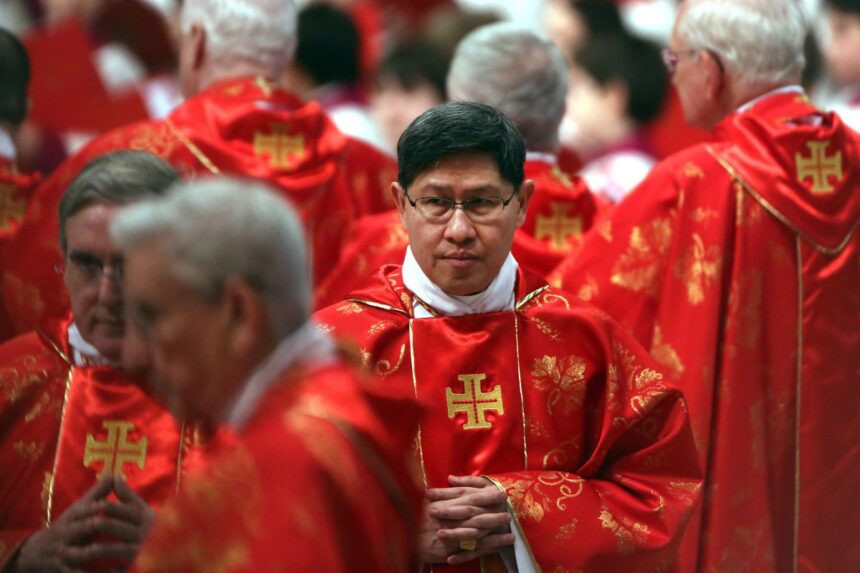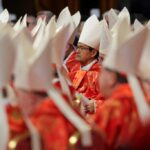VATICAN CITY — Black smoke from the Sistine Chapel’s chimney means the 2025 conclave has yet to select a new pope. Among those attracting most attention is Filipino Cardinal Luis Antonio Tagle, named by many as a likely successor to Pope Francis, who died on 21 April at 88.
The 133 cardinals voting in secret have Tagle’s name at the top of many lists, thanks to his forward-thinking views, broad appeal, and the Catholic Church’s growth in Asia, now home to over 150 million Catholics.
At 67, Cardinal Tagle is often called the “Asian Francis” for his kind manner, humility, and strong focus on social justice. He grew up in Imus, Philippines, in a modest family and moved from parish work to high office at the Vatican’s Dicastery for Evangelisation.
After being ordained in 1982, he became Archbishop of Manila in 2011 and was made cardinal a year later, during Benedict XVI’s papacy. In 2019, he was chosen to lead the Vatican’s main missionary department, a sign of his rising influence.
Tagle speaks fluent English, studied theology in the United States, and is known for his ability to connect, often seen singing or joking in popular videos. Younger Catholics, in particular, find him approachable and relatable.

This year’s conclave, which began on 7 May, is the most international yet, with cardinals from across Asia, Africa, and the Americas helping to shape the next era for the Church. Although only 11% of the world’s 1.4 billion Catholics live in Asia, their numbers are growing fast, especially in the Philippines, which counts over 90 million faithful.
If Cardinal Tagle is chosen, he would be the first Asian pope, a clear sign that the Church’s focus is shifting from Europe to places like Manila, where Catholic life is strong.
Tagle supports many of the changes introduced by Pope Francis, attracting cardinals who want steady progress. He often speaks for the poor, migrants, and people at the edges of society. He has worked hard to make the Church more open, pressing for gentler attitudes towards divorced people, the LGBTQ+ community, and single mothers.
His leadership in the “Walk for Life” in 2017 and his condemnation of killings linked to the Philippines’ war on drugs stand out as moments of moral strength, even if he has avoided direct clashes with politicians.
Online, Tagle has found a loyal following among Gen Z. Clips of him singing or making jokes have spread widely, leading to “Tagle core” memes. Some traditionalists disapprove, saying this informal style does not suit a cardinal. Still, his online presence shows he can connect with a younger, digital crowd—a skill the Church needs today.

Tagle’s record has come under scrutiny. During his time as president of Caritas Internationalis from 2015 to 2022, there were claims of workplace bullying, but he was not personally linked.
Some critics also point to how he handled abuse allegations and say he has struggled with Vatican management, which may draw cardinals to alternatives like Italy’s Cardinal Pietro Parolin. When Tagle sang John Lennon’s Imagine in a 2019 video, some conservatives objected to the choice, saying the lyrics clash with Catholic beliefs.
Despite these hurdles, Tagle’s supporters, including the bishops of the Philippines, praise his warmth and deep faith. His nickname “Chito” reflects a friendly style that appeals to many in a Church that wants to close divides. Social media posts often call him “humble” and “deeply spiritual,” and many see his election as a step toward greater engagement with Asia, including China, where Catholics face restrictions.
As the conclave continues, Cardinal Tagle’s age—67, young for a pope—and his shared outlook with Francis give him a strong profile. Whether Tagle, Parolin, or Ghana’s Peter Turkson is chosen as Pope, Tagle’s presence marks an important change.
The centre of Catholic life is shifting away from Europe. Places like Manila now lead, and Tagle represents this new direction.














